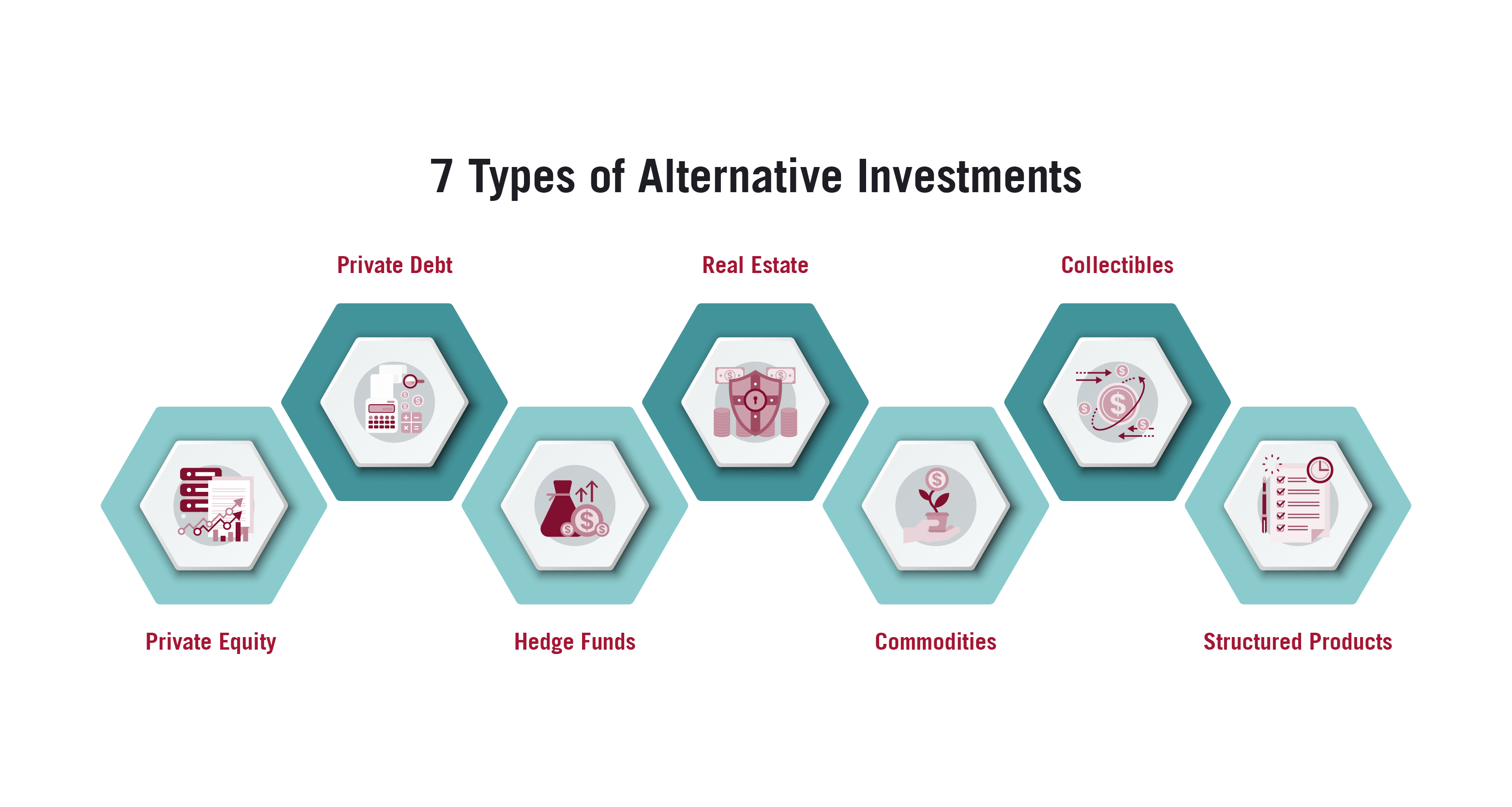Investment Alternatives and Avenues¶
Investment Alternatives: These are the various financial instruments or assets available to investors for deploying their capital. They include options like stocks, bonds, real estate, commodities, and alternative investments such as private equity or cryptocurrencies. Each alternative has its own risk, return, and liquidity characteristics.
Investment Avenues: This term refers to the different channels or markets through which investments can be made. Common avenues include the stock market, bond market, real estate market, commodities market, and alternative investment platforms. These avenues provide opportunities for investors to allocate their funds in various types of assets, depending on their financial goals and risk tolerance.

1. Equity Investments¶
- Stocks: Ownership in a company, offering dividends and capital appreciation. High risk but high potential returns.
- Mutual Funds: Pooled funds managed by professionals, offering diversification with lower risk.
- ETFs: Traded like stocks, providing diversification and liquidity.
2. Debt Investments¶
- Bonds: Debt instruments from corporations/governments with fixed interest. Lower risk, stable returns.
- Fixed Deposits (FDs): Guaranteed returns with fixed interest rates. Safe, low risk.
- Debentures: Unsecured debt with higher risk but potentially higher returns.
3. Real Estate¶
- Residential Properties: Investment in homes, offering rental income and capital appreciation.
- Commercial Properties: Higher rental yields and long-term value appreciation.
4. Commodities¶
- Precious Metals: Safe-haven assets like gold and silver, used as an inflation hedge.
- Energy Commodities: Investments in oil, gas with high volatility.
- Agricultural Commodities: Crops like wheat and soybeans, traded via futures.
5. Alternative Investments¶
- Private Equity: Investing in private companies, high risk and long-term gains.
- Hedge Funds: Employ various strategies for high returns but involve higher risk.
- Cryptocurrencies: Digital currencies like Bitcoin, highly volatile.
6. Derivatives¶
- Futures Contracts: Agreement to buy/sell at a future date, used for speculation or hedging.
- Options Contracts: Right to buy/sell an asset, less risky than futures.
7. Retirement Funds¶
- Provident Fund (PF): Retirement savings with tax benefits and regular contributions.
- Pension Plans: Long-term investment for post-retirement income.
8. Insurance Products¶
- Life Insurance: Financial protection for beneficiaries, can include savings/investment.
- ULIPs: Combines insurance and investment in equity or debt.
9. Savings Instruments¶
- Savings Accounts: Low risk, high liquidity with lower returns.
- Recurring Deposits: Fixed monthly savings with guaranteed returns.
10. Government Schemes¶
- Public Provident Fund (PPF): Long-term, tax-free savings with guaranteed returns.
- National Savings Certificates (NSC): Fixed-income investments offering tax benefits.